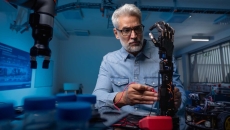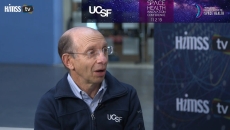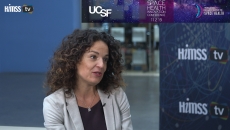UCSF
A study published in Cell reveals a paralyzed man could control a robotic arm for seven months following the implantation of an AI-enabled brain-computer interface.
Facebook also announced it would make its Brain-computer Interface tools open source.
Also: European Commission pushes back Google-Fitbit antitrust investigation deadline; new handheld ultrasound devices.
Also: Centauri Health Solutions acquires HCFS; UCSF researchers detail smartphone PPG-based diabetes detection.
Both efforts are employing popular consumer wearables and health trackers to spot potential cases of COVID-19 or other viral diseases as they begin.
Also: Meru inks commercial agreement with dacadoo and UCSF teams up with Proscia.
Older adults live in a world where they are invisible, so it's time to create one that enables them to thrive, says Dr. Louise Aronson, professor of geriatrics at UCSF.
Maintaining the health of humans leaving Earth pushes our current capabilities, says Dr. Dan Lowenstein, executive vice chancellor and provost at UCSF.
Susanna Rosi, professor of physical therapy at UCSF, says data from her research on animals can help assess cognitive health risks of deep space travel.
Fitbit users can also become part of Cardiogram and UCSF's Health eHeart Study.




